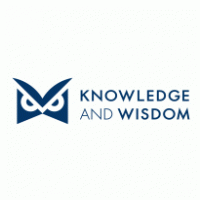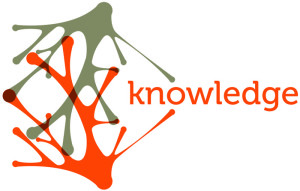Acquiring Knowledge and Wisdom
TRANSCEND MEMBERS, 6 Apr 2020
Dr Ravi P Bhatia – TRANSCEND Media Service
 Knowledge appears in various forms and of various subjects — science, social sciences, mathematics, economics, etc. Not only newer forms of knowledge such as AI (Artificial Intelligence) or Robotics are emerging, but the nature and features are constantly increasing. I am using the word features to suggest the extension or details of the concept of knowledge.
Knowledge appears in various forms and of various subjects — science, social sciences, mathematics, economics, etc. Not only newer forms of knowledge such as AI (Artificial Intelligence) or Robotics are emerging, but the nature and features are constantly increasing. I am using the word features to suggest the extension or details of the concept of knowledge.
For example, there were 92 elements known to scientists by the turn of the 20th century; but after the path breaking research carried out painstakingly by Marie Curie and her husband, several newer elements that were radioactive, were discovered. She and her family were awarded in all five Nobel Prizes for their original researches.
In the field of history for example, newer facts are constantly being added to our knowledge of even Medieval or Ancient History, not to speak of modern times of any country — China or India or France. Our understanding is constantly increasing and getting refined by newer approaches and tools. One subject called Subaltern Studies, that reflected the importance of ordinary people, not just kings and princes, emerged a few decades back.
We may similarly refer to the subject of Geography. We have been learning about rivers, seas, mountains, glaciers earlier even at the School or College level. But today these entities are not considered separately but there is an intermingling and amalgam of these which is responsible for our understanding of global warming, climate change and sustainability of our planet.
In photography, we had earlier only black and white and still photos. Today we have colour and videos and other features in this area that we could only dream of earlier.
The subjects of Politics and Economics are constantly growing as is evident from what is occurring in different parts of the world. The politics of USA is evolving and is of interest to all scholars. Now, China and to an extent Japan and India are objects of study and analysis. Similarly, EU and the decision of Britain to exit from it (Brexit) holds the attention of not only politicians but also of scholars, journalists and media personalities.
Bodies such as IMF, WTO, WB (International Monetary Fund, World Trade Organisation, World Bank) have come up to effectively usher in the impact of economics on politics. A Nobel Prize in Economics in which the recipients have largely been from western countries, was established in 1968 with headquarters in Sweden, reflecting the importance of this subject in the new liberal economies of the world. As an interesting aside, one of my classmates in Delhi University Parthasarathi Dasgupta but who was then in Cambridge University, was strongly rumoured to be in the running for the Eco Nobel a few years ago. Unfortunately, he did not make it.
Technology, by its very nature is constantly changing by the applications of scientific discoveries and the pressure of our wants and ambitions. I have already referred to robotics which is being put to use especially by so called advanced countries of the West which need robots to do simple household chores of cleaning and dusting etc. Another of its interesting applications is to learn different languages with its help. On line—off line terms have become part of our vocabulary by the advances in computer science, mathematics and journalism. We are able to get information about events as they say, by the touch of a button.
We have been talking of the emergence of newer forms and nature of knowledge. An important question that arises is, ‘Are we acquiring wisdom’ in the process?’
It would seem not, if we consider what Albert Einstein, a renowned scientist whose research led to the emergence of theory of relativity and subsequently to quantum physics and nuclear power, had stated. He was against the development of nuclear bombs. But although he was located in USA and strongly refuted the use of nuclear bombs to settle political differences in his writings to the US President, his advice was not followed and Japan was devastated by dropping two nuclear bombs in Hiroshima and Nagasaki.
Again, the examples of writings of Mahatma Gandhi are noteworthy. These would display an absence of wisdom in the workings of mankind. Almost a century back he had written a small booklet, Hind Swaraj, about what true civilisation meant to him and how the British colonial masters used brutality in the colonies they captured. He advocated the concept of truth and nonviolence — a means that led to independence of India and other countries such as South Africa.
Gandhi also urged people not to overexploit the resources of our planet. He had stated simply ‘There is enough for peoples’ needs but not for their greed.’ Had his beliefs and writings been followed, we would not be seeing the degradation of our Earth and the consequent environmental pollution, climate change and dislocation of indigenous peoples from their lands in many parts of the world.
One should also mention the wisdom displayed by some world leaders — Nelson Mandela, Bishop Tutu in S Africa and Martin Luther King Jr In USA, in following Gandhian principles of truth, NV and equality. Vaclav Havel, President of Czechoslovakia, also displayed these qualities.
We can also refer to several religious/secular leaders — Buddha, Moses, Christ, Confucius, Muhammad, Guru Nanak and others who displayed unusual discipline and wisdom to counter the woes that affected large number of peoples in their times.
In this regard one should also mention the teachings of Bhagwad Gita. Many scholars and statesmen have written on the essence of this great Indian epic. One of these persons was Mahatma Gandhi who considered its principles as a guiding principle in his life. One simple maxim of Gita is:
“Do your duty without worrying about its rewards…”
Truly, a universal principle of action in today’s complex world driven in many parts of the world by greed and violence. We want learning, knowledge and technology in today’s world. We must also cherish Wisdom and struggle for it.
______________________________________________
Dr Ravi P Bhatia is a member of the TRANSCEND Network for Peace Development Environment, an educationist, Gandhian scholar and peace researcher. Retired professor, Delhi University. His new book, A Garland of Ideas—Gandhian, Religious, Educational, Environmental was published recently in Delhi. ravipbhatia@gmail.com
This article originally appeared on Transcend Media Service (TMS) on 6 Apr 2020.
Anticopyright: Editorials and articles originated on TMS may be freely reprinted, disseminated, translated and used as background material, provided an acknowledgement and link to the source, TMS: Acquiring Knowledge and Wisdom, is included. Thank you.
If you enjoyed this article, please donate to TMS to join the growing list of TMS Supporters.

This work is licensed under a CC BY-NC 4.0 License.
